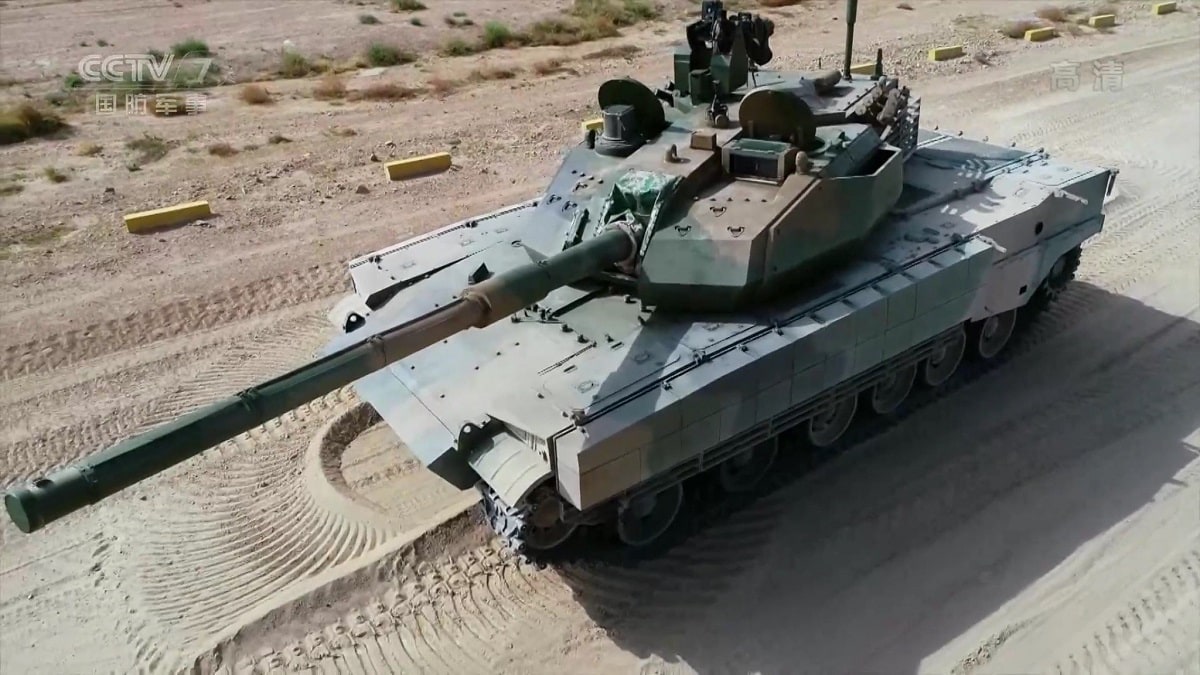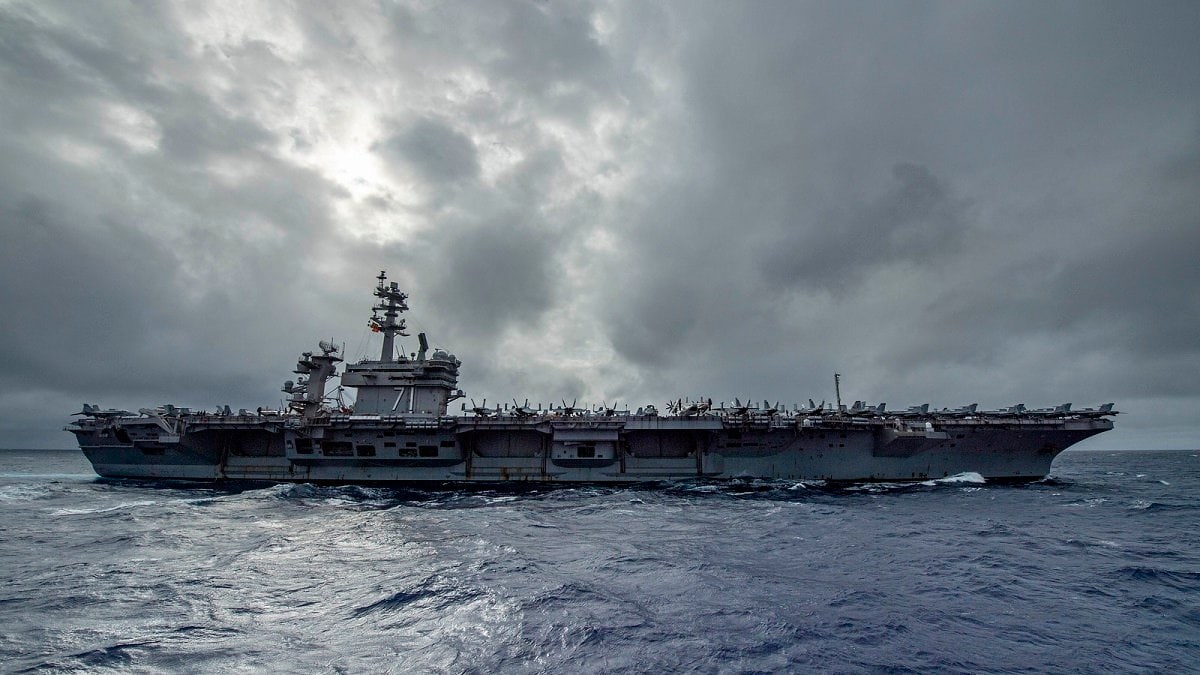This summer is clearly an appropriate time to reflect on the events of 1991. Roughly thirty years ago marked the midpoint between the Gulf War victory over Iraq in February and the collapse of the Soviet Union in December.
Triumphalism in the aftermath of 1991 led American leadership to declare the United States an “indispensable nation” presented with the opportunity of a “unipolar moment,” and the obligation to democratize the world as well as the responsibility to protect the powerless.
Instead, the result was unending military intervention and strident unilateralism.
The continuous interventions sapped American strength and treasure and antagonized longtime allies.
Meanwhile, the People’s Republic of China achieved a rise unequaled in history.
In 1991, China possessed a military weaker than Iraq’s and was the subject of international condemnation after slaughtering democratic protesters in Tiananmen Square.
Thirty years later, China has established a modern military and is America’s greatest competitor for global influence.
This reversal of fortune reflects both America’s misinterpretation and China’s more astute understanding of that year’s events.
The Gulf War and USSR RIP: What Other Nations Learned
The Gulf War prompted Westerners to anticipate a revolution in military affairs, but others realized their less wealthy homelands were more vulnerable than ever. As India’s military chief of staff reportedly commented, “Never fight the U.S. without nuclear weapons.” However, pursuing nuclear weapons meant sanctions, isolation, or “eating grass.” Observers universally agreed American military supremacy was essentially guaranteed.
The Soviet Union‘s collapse led many to predict an even more world-historic moment — the triumph of democracy over autocracy. Commentators pondered the “end of history,” as the peace and prosperity of liberal capitalism had demonstrated its superiority to the militarism and stagnation of dictatorships. Western leaders concluded worldwide democratization was only a matter of time.
China, however, grasped the corollaries to these events.
China already possessed nuclear weapons but its regional aims required a modern military capable of power projection. The United States undertook the Gulf War to “liberate” Kuwait, which Iraq had claimed as its “19th province.” China had a similar sovereign claim on Taiwan, but it had been powerless to stop American carriers from sailing through the Taiwan Strait in 1994 and 1996. The only way to deter the United States from preventing “reunification” was to develop a modern military and the Gulf War victory provided the template.
China additionally recognized authoritarianism was hardly terminal. China proved totalitarian regimes can suppress dissent violently and survive, as long as they are integrated into the global economy. Indeed, America continuously scaled back the sanction regime in the 1990s to foster more trade. In 2000, America established permanent normal trade relations with China; the next year, America supported China in joining the World Trade Organization. Chinese leaders proved democratization was not preordained as they presided over an economic powerhouse that only fortified the party’s authoritarian hold on the country.
Today, China’s economy is the largest in the world and the number one trading partner to nearly every country around the globe.
For the near term, China’s military will serve as the “pacing threat” for American armed forces and the regime’s successes will persuade many that authoritarianism is an attractive alternative to Western democracy.

China’s Type 15 Light Tank: Image: CCTV.
What America Must Do Going Forward
While America regenerates its military and struggles with political polarization at home, decision-makers should recall and can capitalize on an under-appreciated advantage from that year — its capacity to build and sustain alliances. In 1991, the global Gulf War coalition legitimated the war while the Atlantic alliance helped the Cold War end peacefully and institutionalized enduring cooperation. Amid uncertainty in Asia, active coalition-building provides a path forward.
In East Asia, America already possesses potent allies in Japan and South Korea and the wind is at its back.
First, China actively uses its economic heft to coerce its trading partners on matters great and small. Over the past decade, China has channeled resources to local politicians, restricted imports, suspended rare earth metal exports, curtailed tourism, and downgraded diplomatic relations. However, the more China exercises its influence, the greater the backlash in the targeted country. Countries once untroubled by their growing economic dependence on China are exploring ways to reclaim their autonomy, even at the risk of additional retaliation.
Second, traditional balance of power considerations typically lead neighboring states to bandwagon with or balance against the rising state. The prime example of the latter is the growing ties between the U.S. and Vietnam, bitter enemies less than fifty years ago. Similarly, America, Australia, India, and Japan have revived the dormant Quadrilateral Security Dialogue.
Third, China’s armed clashes with India, intimidation of Taiwan, construction in the South China Sea, and the violent suppression of Hong Kong protests, are convincing neighboring states that it is prepared to use force to achieve its aims.
The principal challenge will be separating Russia from China and maintain Japan as an ally.
After 1991, China and Russia would periodically declare their joint concern about American unipolarity, but the relationship was essentially transactional. Chinese-Russian trade primarily revolved around natural resources and modern military equipment. As China grew and Russia stabilized, the two began deepening their relationship, backing each other diplomatically, forming new multilateral bodies excluding the United States, and conducting joint military exercises.
Continued alignment with China saves Russia from having to face the West unilaterally but, China is indisputably the dominant partner in the relationship. As Russia continues to stagnate, it will be unable to withstand Chinese demands for preferential access to its natural resources or concessions in Siberia.
Japan, as noted above, is a longtime American ally but it has refrained from enhancing its military posture or joining American overseas operations. America has increasingly pressured Japan to do both, but unsuccessfully. Moreover, Japan’s economy has been stagnant for the last three decades and continues to lose ground to China.
If Japan fails to convert its military potential into actual capabilities, China might seize opportunities to secure Japan’s neutrality in the event of any conflict with America. China could promise guaranteed passage of its vessels through the South China Seas, not to strike its territory, or support for its territorial claims, such as those in Kurile Islands vis-a-vis Russia. As noted above, Russia would be unable to defy Chinese pressure.
American diplomatic goals should be twofold.
To lure Russia away from China, America should recognize the former’s legitimate security interests in its near abroad. Steps would include assurances to refrain from further NATO expansion into Ukraine and Georgia and minimizing its military footprint in Central Asia. Furthermore, America and Russia should collaborate on coinciding interests in the Middle East, namely countering Islamic extremism.
To sustain the alliance with Japan, America should form a trilateral security agreement in conjunction with Australia. Each has indicated its concern over Chinese aggressiveness in the region, especially in regard to freedom of navigation in the South China Seas, and each has responded by prioritizing the modernization and expansion of their respective navies. Ensuring the complementarity of the three navies’ would help counterbalance the Chinese navy, which is now the largest in the world.
Moreover, the alignment would help ensure the longevity of the Quad. Deeper linkages among the United States, Australia, and Japan will assure the traditionally alliance-averse India that the Quad will be more dialogue before it becomes more secure.
While military supremacy is no longer assured and the appeal of democracy has ebbed, American security can be achieved via alliances.
Jordan Prescott is a private contractor working in defense and national security since 2002. He has been published in RealClearDefense, The National Interest, Small Wars Journal, and Modern War Institute.

